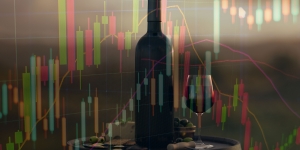Brand Directory: Retail Fixtures & Supplies
A
- A Little Better Products
- AandRbox
- Acme Display
- Acorn East
- Air Sea Containers
- AirTime
- All Packaging Company
- All Packaging Services
- All-In-One Suppliers
- Allied Shipping & Packaging Supplies
- Alpha Custom Boxes
- AM Shipping Supplies
- American Clothing Supply
- American Paper & Plastic
- American Retail Supply
- Ameripak
- AMG Displays
- AML
- AnyCustomBox
- APlasticBag.com
- Apollo Hardware
- Aqua Printers
- Arka Packaging
- Ashtonne Packaging
- aspecialtybox
- Assemblies Unlimited
- Associated Bag
- Atlas RFID Store
- Azar
B
- Bags & Bows
- BallQube
- Bar Codes Talk
- Barcode-Arena.com
- BarCodeWiz.com
- Basic Packaging Supply
- Bay Area Industrial Service
- BDY
- Bedford
- Bennett
- Berlin Packaging
- Berry Global
- Bexo Packaging
- BGR
- Big Valley Packaging
- Black Unicorn Hub
- Bling Bling Packaging
- Bluebird Packaging
- BlueBox Packaging
- BottleMark
- BottleStore
- BoxItUp Packaging Supplies
- BoxPackingSolution
- BoxPrinting4Less.com
- Bradley's Plastic Bag Co.
- Brandable Box
- Brilliant Packaging Suppliers
- Brown & Pratt
- Budget Box & Bag
- Build A Box
- Bulk Bin Packaging
- Bulk-Pack
- Burch Bottle
- Buy Bulk Displays
- Buyabarcode.com
- Buyboxes.com
C
- Cactus Containers
- Cardinal
- Cary Company
- Cheap Box Printing
- Cheap Custom Boxes
- Chu's Packaging Supplies
- City Of Packaging
- Classic Packaging Corporation
- ClearBags
- Collect 3D
- Collecting Warehouse
- Collie Culture
- Colony Packaging
- Colorel
- CompanyBox
- Complete Supply
- Container and Packaging
- CoPack Inc
- Creative Labz
- Creative Packaging Group
- Creative Retail Packaging
- Creopack
- Crown Packaging
- CTP Boxes & Packaging
- Custom Box Printing
- Custom Box Solutions
- Custom Boxes Club
- Custom Boxes Hub
- Custom Boxes Market
- Custom Boxes Mart
- Custom Boxes Now
- Custom Boxes Tech
- Custom Cardboard Packaging
- Custom Made Boxes
- Custom Packaging & Products
- Custom Packaging Hub
- Custom Packaging Pro
- Custom Packaging Shop
- Custom Packaging Supply
- Custom Wine Packaging
- CustomBoxesFor
- CustomPrintBox
- Cut Pak Co.
D
E
F
G
H
I
J
K
L
M
- M Pack Solutions
- M-Line
- Mannequin Madness
- Manufacturers Packaging
- Mauser Packaging Solutions
- Max Custom Boxes
- Merchant Equipment Store
- Merchsource
- Metropak
- Mid-Atlantic Packaging
- MJS Packaging
- MLR Packaging Supplies & Equipment
- Modern Arts Packaging
- Monterey Packaging Supplies
- Morgan Chaney
- Mr Shrinkwrap
- Mr. Jims Pizza
- MrTakeOutBags
- Multiple Packages
- My Box Packaging
- Myboxprinter
- MyBoxPrinting
N
O
P
- PackageIt
- PackageWorks
- Packaging Accessories
- Packaging Bee
- Packaging Express
- Packaging Globe
- Packaging Mines
- Packaging Price
- Packaging Republic
- Packaging Sea
- Packaging Services Industries
- Packaging Source Inc
- Packaging Supply Depot
- Packaging Too
- Packaging Utah
- Packaging Xpert
- Packagingblue.com
- PackagingSupplies.com
- Packhelp
- Packhit
- Packing Service
- Packlane
- PackMojo
- Packola
- Packwire.com
- PakFactory
- PAKIBLE
- Paper Bird Packaging
- Paper Mart
- PDS Packaging
- Peek Packaging
- Performance Packaging
- PhoeniXcustomboxes
- Pioneer Plastics
- Platinum Visual Systems
- Plexi Displays
- Plus Packaging
- Plus Printers
- Pop Hardcase
- Portland Packaging
- Precision Dynamics Corporation
- Precision Packaging Services
- Premier Packaging
- Premium Custom Boxes
- Premium Vials
- PressKits
- Prime Line Packaging
- Prime Time Packaging
- Print My Boxes
- Printlon
- Pro Pac
- Product Display Solutions
- PSI Packaging Services
Q
R
S
- S. Walter Packaging
- Salazar Packaging
- Same Day Rush Printing
- San Diego Sign Company
- Seaman Paper
- Shipping Supply
- ShopKalia
- Signwin
- Silver Edge Packaging
- Simple Retail
- Skybox Packaging
- Snowie
- Specialty Store Services
- Splash Packaging
- Star Packaging Supplies
- Stearns Packaging Corporation
- Stickel Packaging Supply
- Store Supply Warehouse
- Sunrise Packaging
- Super Secure Packaging Supplies
- Superior Packaging Solutions
- SupplyOne
- Supr Pack
T
- TADD Innovations
- Tag & Label
- TazPack
- Technical Packaging Systems
- Tecno Display
- Testrite
- Tgoldkamp
- The Boxery
- The BoxMaker
- The Chic Panda
- The Custom Box Packaging
- The Custom Boxes
- The Custom Boxes Print
- The Custom Packaging
- The Customize Boxes
- The Legacy Printing
- The Packaging Company
- The Packaging Source
- The Packaging Wholesalers
- The Packtory
- The Paper Store and More
- The Premium Boxes
- The Product Boxes
- The US Packaging
- The Yebo Group
- TheCaliDrip
- TheCustomPack
- TheSpeedyPack
- Topregal
- TraffikFlo
- TwinSource Supply









